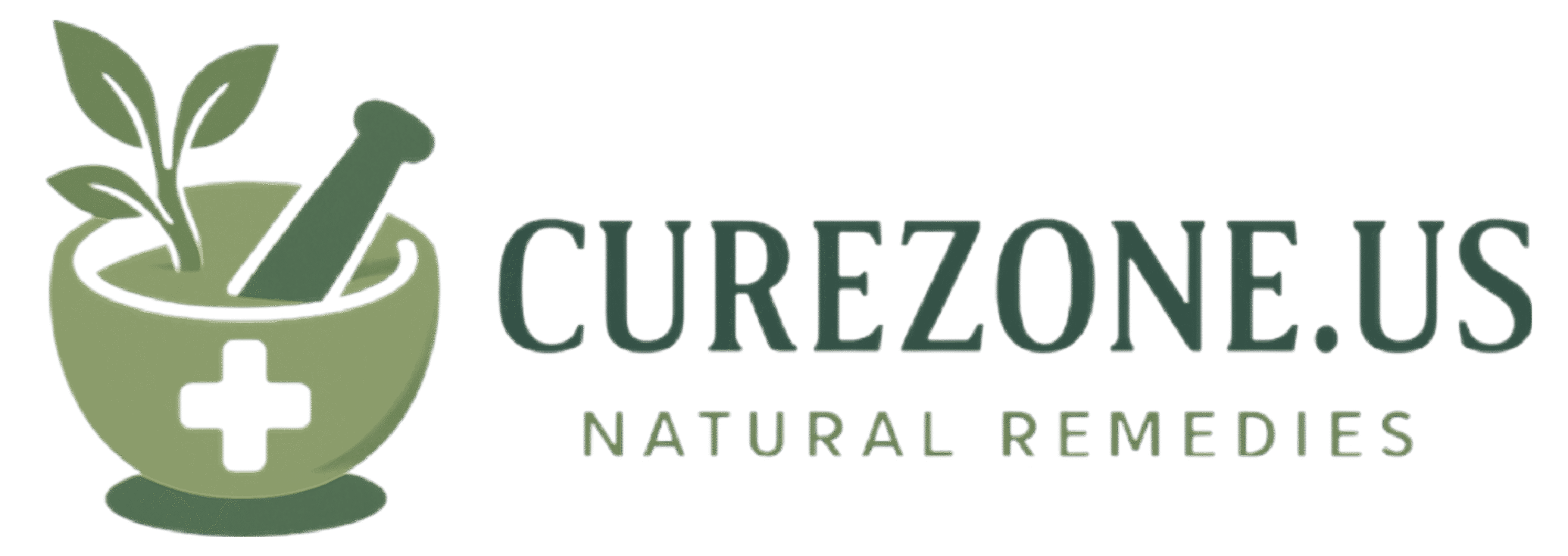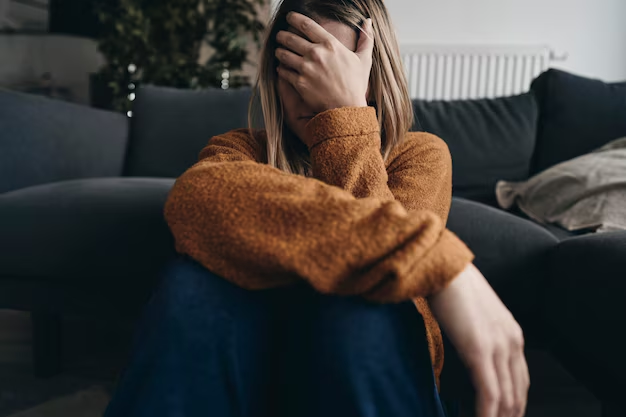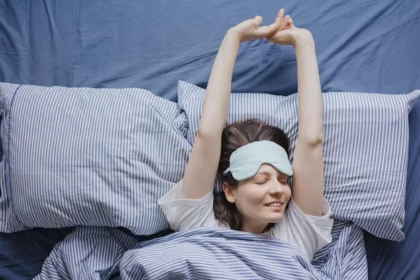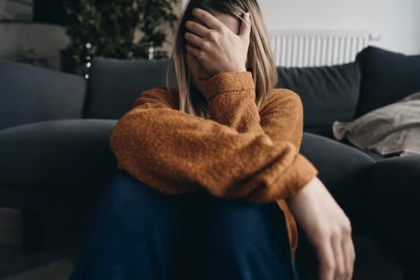How to reduce anxiety naturally
Anxiety is a natural part of life. Everyone feels anxious sometimes — before a job interview, an exam, or when facing a big decision. But for many people, anxiety becomes a daily struggle. The good news is, there are many simple and natural ways to help reduce anxiety — no medications required. If you’ve been asking yourself how to reduce anxiety naturally, you’re in the right place.
- What Is Anxiety, Really?
- 1. Practice Deep Breathing
- 2. Get Moving – Exercise Really Helps
- 3. Limit Caffeine and Sugar
- 4. Try Herbal Remedies
- 5. Get Enough Sleep
- 6. Try Journaling
- 7. Practice Mindfulness and Meditation
- 8. Connect With Nature
- 9. Talk It Out
- 10. Make Time for Joy
- Final Thoughts: You Can Do This
- FAQ: How to Reduce Anxiety Naturally
In this article, we’ll explore natural solutions that are backed by science and easy to add to your daily life. These tips don’t require expensive supplements or fancy tools — just small, practical steps that work.
What Is Anxiety, Really?
Before we get into solutions, let’s understand what anxiety is.
Anxiety is your body’s response to stress. It’s a feeling of fear or worry about what’s to come. While some anxiety is helpful (like keeping you alert in dangerous situations), too much can interfere with your daily life. Symptoms include:
- Rapid heartbeat
- Restlessness
- Trouble sleeping
- Worrying all the time
- Trouble concentrating
- Stomach issues
If your anxiety is severe or long-lasting, it’s important to talk to a doctor or therapist. But if you’re looking for gentle, natural ways to manage everyday anxiety, keep reading.
1. Practice Deep Breathing
Let’s start with one of the easiest tools: your breath.
When you’re anxious, your breathing becomes shallow and fast. This makes your brain think something is wrong, increasing anxiety. Deep breathing reverses this process.
How to Try It:
- Sit in a quiet place
- Inhale slowly through your nose for 4 seconds
- Hold your breath for 4 seconds
- Exhale slowly through your mouth for 6–8 seconds
- Repeat for 2–5 minutes
This method tells your body to relax. Use it before a meeting, during a panic attack, or anytime anxiety creeps in.
2. Get Moving – Exercise Really Helps
Exercise isn’t just good for your body — it’s one of the best natural remedies for anxiety.
When you get your body moving, it releases endorphins—natural chemicals that help lift your mood. Exercise also reduces the levels of stress hormones like cortisol.
Easy Ways to Get Started:
- Take a 20-minute walk every day
- Try yoga or stretching at home
- Dance to your favorite music
- Ride a bike or swim
You don’t need to join a gym. The goal is to move — even a little helps!
3. Limit Caffeine and Sugar
What you eat affects how you feel. Caffeine and sugar are two big triggers for anxiety.
Caffeine is a stimulant that can make your heart race and your thoughts speed up — just like anxiety. Sugar causes energy spikes and crashes, which can make you feel tired, cranky, or worried.
What You Can Do:
- Swap coffee for herbal tea like chamomile or peppermint
- Avoid energy drinks and sugary sodas
- Eat balanced meals with whole grains, protein, and healthy fats
- Drink more water throughout the day
By giving your body better fuel, your mind will feel more balanced too.
4. Try Herbal Remedies
Many herbs have calming effects and can help reduce anxiety naturally. Here are a few popular and well-researched options:
Top Herbs for Anxiety:
- Chamomile: Known for its calming effects. Try it as tea before bed.
- Lavender: Smelling lavender oil or using it in a diffuser can lower stress.
- Ashwagandha: is an adaptogen, meaning it helps your body cope with stress more effectively.
- Lemon Balm: Often used in teas to promote relaxation.
Important: Always check with a doctor before using herbal supplements, especially if you’re on other medications.
5. Get Enough Sleep
Lack of sleep and anxiety go hand in hand. If you’re not sleeping well, your brain can’t reset, and your anxiety may get worse.
Tips for Better Sleep:
- Stick to a regular sleep schedule
- Turn off screens 1 hour before bed
- Try calming music or white noise
- Avoid caffeine after 2 PM
- Keep your room cool, quiet, and dark
Even improving your sleep by 30 minutes a night can make a big difference in how you feel during the day.
6. Try Journaling
Your mind is full of thoughts, especially when you’re anxious. Journaling helps clear your mental space and makes things feel less overwhelming.
How to Start:
- Write for 5–10 minutes each day
- Don’t worry about grammar or spelling
- Write down what’s worrying you — or what you’re grateful for
- Use prompts like:
- What’s making me feel anxious today?
- What’s something I can control right now?
Writing things down can reduce the power they have over your mind.
7. Practice Mindfulness and Meditation
Mindfulness means focusing on the present moment — not worrying about the past or the future. Meditation helps train your brain to be more calm and present.
How to Begin:
- Start with just 3–5 minutes a day
- Find a comfortable seat, gently close your eyes, and bring your attention to your breathing.
- Notice your thoughts without judging them
- Use free apps like Insight Timer, Headspace, or Calm
With practice, mindfulness becomes easier and more natural — and anxiety loses its grip.
8. Connect With Nature
Being in nature can help relax and soothe your nervous system. It’s one of the most underrated natural anxiety remedies.
Ideas to Try:
- Walk in a park
- Sit under a tree
- Listen to birds or water sounds
- Garden or care for plants
- Watch the sunset
Studies show that just 20 minutes a day in nature can reduce stress levels and improve mood.
9. Talk It Out
You don’t have to go through anxiety alone. Talking to someone can be healing, even if they don’t have the answers.
Options:
- Call a trusted friend or family member
- Join a support group
- See a counselor or therapist
- Try online therapy platforms
Talking releases tension and helps you feel heard and supported. You deserve that.
10. Make Time for Joy
When anxiety takes over, it’s easy to forget to enjoy life. Making time for fun and creativity can restore balance.
What Brings You Joy?
- Listening to music
- Painting, drawing, or crafting
- Playing with pets
- Reading or watching a feel-good movie
- Cooking something new
Doing something you enjoy helps your brain relax — and reminds you that life is more than just stress.
Final Thoughts: You Can Do This
If you’re wondering how to reduce anxiety naturally, remember that small changes lead to big results. Begin with one or two suggestions from this list and gradually add more as you go. Be kind to yourself. Healing doesn’t happen overnight, but progress is possible.
You’re not weak for feeling anxious. You’re human. And the fact that you’re looking for natural ways to feel better means you’re already taking a powerful step forward.
Quick Summary – 10 Natural Ways to Reduce Anxiety
- Deep Breathing
- Daily Exercise
- Cut Caffeine & Sugar
- Herbal Support
- Better Sleep Habits
- Journaling
- Mindfulness & Meditation
- Nature Time
- Talk to Someone
- Make Time for Joy
FAQ: How to Reduce Anxiety Naturally
Q: Can I really reduce anxiety without medication?
A: Yes, many people manage anxiety naturally with lifestyle changes, mindfulness, and support. Medication can help too, but it’s not the only path.
Q: How long before I feel better with natural methods?
A: Everyone is different. Some methods (like deep breathing) work immediately. Others (like exercise or sleep routines) may take a few weeks.
Q: Are herbal remedies safe?
A: Many are safe, but always check with a doctor — especially if you’re pregnant, nursing, or taking other medicines.
By taking care of your body, mind, and emotions, you can calm anxiety naturally and take back control of your life. 🌿






